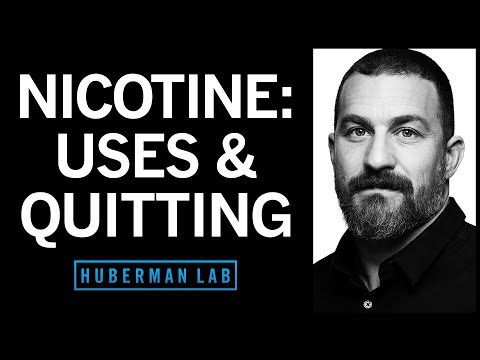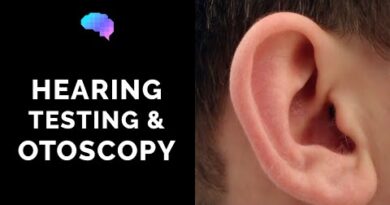Nicotines Effects on the Brain & Body & How to Quit Smoking or Vaping | Huberman Lab Podcast #90
Nicotine addiction is a global health issue, affecting millions of people who smoke cigarettes or use vaping products. In episode 90 of the Huberman Lab Podcast, the topic revolves around how nicotine impacts our brain and body, and practical strategies for those looking to quit smoking or vaping.
**Effects of Nicotine on the Brain**
Nicotine acts as a stimulant in the brain. It binds to acetylcholine receptors, which are part of the cholinergic system involved in arousal, attention, mood, and other neurobiological functions. When nicotine binds to these receptors, it triggers the release of several neurotransmitters including dopamine, which enhances pleasure and mood-modulating effects. This increase in dopamine is a key factor in the development of nicotine addiction.
The podcast highlights that chronic exposure to nicotine alters the balance and function of neurotransmitters in the brain. It can lead to changes in cognitive functions such as focus, memory retention, and overall mental health. Over time, the brain becomes dependent on nicotine for maintaining these neurotransmitter levels, leading to addiction.
**Effects of Nicotine on the Body**
Beyond its effects on the brain, nicotine also poses several risks to physical health. It increases heart rate and blood pressure, posing risks for cardiovascular diseases. Nicotine can also constrict blood vessels causing reduced blood flow and promoting risk factors associated with stroke or heart attack.
Further discussed are nicotine’s impacts on metabolic processes; it can suppress insulin output from the pancreas leading to higher blood sugar levels which may increase diabetes risk factors over time.
**How to Quit Smoking or Vaping**
Quitting smoking or vaping is challenging due to nicotine’s addictive nature. However, episode 90 delves into various effective strategies that can support cessation:
1. **Behavioral Changes**: Recognizing triggers that lead to smoking or vaping can help individuals avoid them. Regular exercise and adopting new stress-relief techniques like meditation can also reduce reliance on nicotine for stress management.
2. **Nicotine Replacement Therapy (NRT)**: Products like patches gums lozenges inhalers and nasal sprays provide smaller amounts of nicotine without other harmful chemicals found in cigarettes This helps manage withdrawal symptoms gradually reducing dependence without immediate cessation-related distress.
3. **Prescription Medications**: Medications such as bupropion (Zyban) varenicline (Chantix) have been shown effective at reducing cravings for nicotine They work by altering chemicals within your brain lessening pleasant feelings derived from smoking thus helping gradually quit.
4 **Support Systems**: Joining support groups or counseling sessions provides emotional encouragement making it easier stick with your decision quit These communities allow sharing experiences learning from others’ successes mistakes equally beneficial
5 **Education Knowledge**: Understanding dangers associated with smoking vaping alongside benefits quitting often provides motivation needed maintain long-term abstinence Armed this knowledge individuals may feel empowered take control their health outcomes
In conclusion Episode 90 “Huberman Lab Podcast” offers deep insights into how exactly affects us along actionable advice designed help end addiction Whether through gradual reduction supports professional treatment plans personal determination plenty proven ways combat dependence effectively ensuring healthier future


